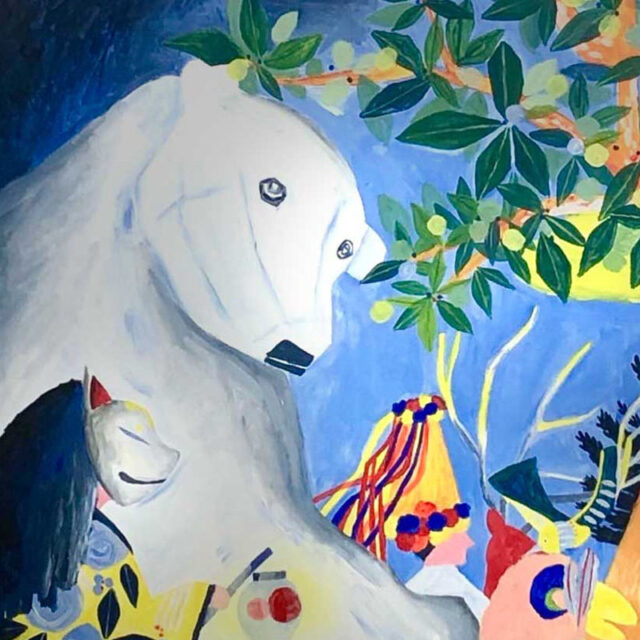International Shakuhachi Festival Prague 2023 Symposium
Organised by NEIRO Association for Expanding Arts in cooperation with the Music Theory Department, Music and Dance Faculty of the Academy of Performing Arts in Prague
Call For Papers
Music and Altered States of Consciousness
One-day conference
June 1st, 2023
Academy of Performing Arts Prague, Czech Republic, and online
Music has always been a part of various religious ceremonies, magical rituals, healing and shamanic practices inducing trance, meditation and other phenomena that can be collectively called altered states of consciousness.
Therefore, the question is what mechanisms lie behind the music’s influence on the human psyche? Are altered states of consciousness induced by the music alone or are there other aspects, such as anthropological or social, at play? What is the role of music in various rituals? How does it affect us in our everyday life?
The practice based on altered states of consciousness can be found in various forms all around the world – e.g. in African or African-American cults (Bori, Rab, Umbanda, Santería or voodoo), in shamans’ (both Asian and American) work, in the healing trance rituals of Zar (Ethiopia) or Gnawa (Morocco), it also includes Indian mantras (both traditional Vedic and their modern Western adaptations), Tibetan ritual music or trance theatre performances in Bali (Rangda/Barong). Last but not least, we should also mention Western sacred music, such as Christian liturgical chants in Gothic cathedrals which enhance these states visually with their vertically oriented architecture. The use of the Japanese shakuhachi flute in the suizen Zen Buddhist meditation practice of the Fuke sect is a case in point. Here, even the style of playing the instrument is governed by this purpose – individual musical phrases are measured by the length of the player’s breath (as is well known, breathing techniques are some of the most effective means of inducing altered states of consciousness – see pranayama, holotropic breathwork, etc.).
However, altered states of consciousness are not only present in non-Western cultures! They are indeed a part of our everyday musical life, whether we are aware of it or not. Rock musicians and their audiences fall into a kind of trance, a players’ specific state of consciousness is a prerequisite for a good jazz improvisation, and even in the daily practice of an instrument a specific, both highly beneficial and addictive, “other” state of consciousness is highly desirable. Electronic dance music festivals (especially some of their sub-genres such as psytrance) are a kind of modern shamanic rituals centered around altered states of consciousness.
These themes and questions should act as stimuli of sharing at a symposium organized by the International Shakuhachi Festival Prague 2023. We invite music theorists, psychologists, composers, music therapists or performers who have something to say on this topic to submit their proposals for a 20-minute presentation which will be followed by a 10-minute discussion. If necessary, musical excerpts of maximum 10 minutes can be added to the presentation. Abstracts must not exceed 300 words.
About International Shakuhachi Festival Prague
The International Shakuhachi Festival Prague 2023 (ISFP 2023, www.isfp.cz), June 1 – 5, is an event dedicated to cultural and artistic exchange between Japanese and European contemporary music. Over the thirteen years of its existence, it has become an important artistic, networking and educational platform for musicians, composers, scholars and artists. Its long-term goal is to expand its audience perception for sound.
Selected papers with topics falling within the scope of musicology, artistic research, ethnomusicology, organology and music theory will be published upon peer review in Živá Hudba/Living Music Review, the journal of the Music and Dance Faculty of the Academy of Performing Arts in Prague.
Written papers, however, are not mandatory for the symposium presentations.
This symposium will be conducted in English and broadcasted online.
Symposium Committee
- Ing. MgA. Tomáš Reindl, Ph.D., Department of Music Theory, Music and Dance Faculty of the Academy of Performing Arts in Prague
- doc. MgA. Slavomír Hořínka PhD., Department of Composition, Music and Dance Faculty of the Academy of Performing Arts in Prague
- Anna Matvija M.A. , NEIRO Association for Expanding Arts
Important Dates
- Abstract and recording (optional) submission deadline: 7 January 2023
- Notice of acceptance deadline: 28 February 2023
- Full papers for reviewed publication submission deadline: 30 April 2023
- Symposium date: 1 June 2023
Abstract Formal Requirements
- Range: Maximum 300 words
- Submission: Online at www.isfp.cz/2023/symposium/isfp-2023-symposium-registration-form/
- Presentation format: 20 min + 10 min
Paper Formal Requirements and Submission
Please see the website of ŽiváHudba/Living Music Review:
https://ziva-hudba.info/for-authors/
Should you have any questions about the paper publication, please contact the symposium coordinator Jakub Míšek at jkb.misek@mail.muni.cz.
Symposium Fees and Registration
Speaker fee: 40 EUR
Please register online at www.isfp.cz/2023/symposium/isfp-2023-symposium-registration-form/
Symposium Addresses
Symposium website: www.isfp.cz/2023/symposium/
Symposium e-mail address: jkb.misek@mail.muni.cz, info@neiro.org
Symposium venue:
Music and Dance Faculty of the Academy of Performing Arts in Prague (HAMU)
Malostranské náměstí 258/13
118 00 Prague 1
Czech Republic
Mailing address (not the symposium venue):
NEIRO Association for Expanding Arts z.s.
Holandská 1050/48
101 00 Praha 10 – Vršovice
Czech Republic
